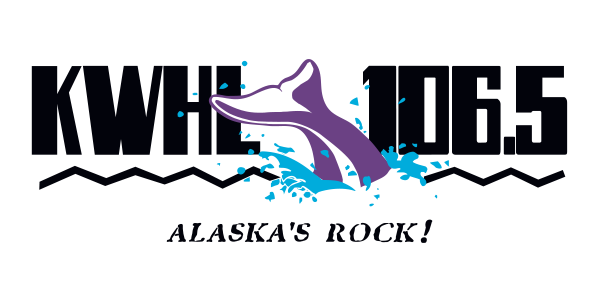20 Big Things That Didn’t Exist Before Nirvana’s Last Concert
March 11, 2019 10:37AM AKDT
Welcome to the list that’s gonna make ya feel a little older than you did before you started reading this.
So Nirvana played their last concert on March 1, 1994. Since that Munich show, the world has changed in many ways, and we’re taking a look at 20 of them below.

1. Greta Van Fleet Weren’t Born Yet
Greta Van Fleet’s arrival in the late ’10s was heralded for bringing the classic-rock sound back to radio. No one in the band was born yet on March 1, 1994. Twin brothers Josh and Jake Kiska, the oldest members of the group, entered the world on April 23, 1996.
2. The Carolina Panthers, Tampa Bay Rays and 12 Other Sports Teams
Every major North American sports league has expanded since 1994. In 1998, MLB welcomed the Tampa Bay Devil Rays (now the Rays) and the Arizona Diamondbacks. In the NFL, the Carolina Panthers and Jacksonville Jaguars began play in 1995; the Cleveland Browns moved to Baltimore in 1996 and a new Browns franchise started in 1999; and the Houston Texans joined the league in 2002. The NBA expanded to Canada in 1995 with the arrival of the Toronto Raptors and the Vancouver (now Memphis) Grizzlies. Since 1994, five teams have joined the NHL: The Nashville Predators (1998), the Atlanta Thrashers (1999, now the Winnipeg Jets), the Columbus Blue Jackets and Minnesota Wild (2000) and the Vegas Golden Knights (2017). Major League Soccer began play in 1996 and has since expanded to 24 teams.
3. Social Media
Services like CompuServe and Internet Relay Chat allowed users to connect with each other online in the ’80s. Then early internet providers like America Online worked chatrooms into their platform, as 1997’s AOL Instant Messenger created a new paradigm. Friendster was introduced in 2002, and upped the game by letting users create profiles and share files with each other. They were soon usurped by Myspace a year later. The next decade saw the arrival of Facebook, Reddit, Twitter, Pinterest, Instagram, Twitch and Snapchat – all of which changed the way many of us interact with others in the online realm.

4. Viagra
Originally intended by Pfizer as a treatment for chest pain, Viagra became the first drug to receive FDA approval for treatment of erectile dysfunction in 1998. Others like Cialis and Levitra followed, and commercial breaks during sporting events haven’t been the same since.
5. Googling
“Googling” had yet not become the standard term for searching the internet. In fact, Google didn’t even join the World Wide Web until September 1997. Search engines had been around for few years prior to Nirvana’s last concert, and shortly thereafter a pair of Stanford graduate students named Jerry Yang and David Filo changed the name of the directory they built: “Jerry and David’s Guide to the World Wide Web,” became Yahoo!
6. Justin Bieber Barely Existed
In an odd coincidence, the day of Nirvana’s last concert happened to be the day that Justin Bieber was born in London, Ontario, Canada. Although Nirvana’s rise to fame was improbable, it was still done in the traditional sense, where a band gains a local following, puts out an independent release and gets signed to a major label. Bieber’s popularity stemmed from one of the ways technology has changed our world. He uploaded videos of himself singing covers to YouTube, where they were discovered by future manager Scooter Braun.

7. The Long Wait for Guns N’ Roses’ ‘Chinese Democracy’
Guns N’ Roses put out an all-covers album called ‘The Spaghetti Incident?’ less than four months before Nirvana’s last concert. Arriving only two years after the ‘Use Your illusion’ records, it was probably viewed as a stopgap, the way most cover albums are. Instead, Guns N’ Roses went through a series of personnel moves, ultimately leaving Axl Rose as the only remaining original member. ‘Chinese Democracy,’ the band’s next studio effort, wouldn’t arrive until 2008.
8. The iPod
The mp3 file format for digitized music was introduced in 1993 and, within a few years, devices sprung up to compete with portable CD players. The arrival of Apple’s iPod in 2001 offered greater storage and integration with its iTunes desktop player and music store, revolutionizing the industry. But as streaming the culture made inroads, particularly after Spotify’s U.S. launch in 2011, Apple began phasing out its iPod and de-emphasizing the music downloading side of its business. The Apple Music platform followed in 2015.
9. Daniel Craig (or Even Pierce Brosnan) as James Bond
Although Timothy Dalton was still James Bond by 1994, the franchise’s most recent entry was 1989’s ‘License to Kill.’ Litigation was continuing after the sale of distributor MGM/United Artists. This delay coincided with the end of Dalton’s seven-year contract, and in June 1994, Pierce Brosnan was announced as the new James Bond. He made his debut in 1995’s ‘GoldenEye’ and played Bond through 2002’s ‘Die Another Day.’ Daniel Craig replaced Brosnan for ‘Casino Royale’ in 2006.

10. OJ Simpson, Murder Suspect
When Nirvana played its last show on March 1, 1994, OJ Simpson was still thought of as a former football great who occasionally acted. But on June 12 of that year, his ex-wife Nicole Brown Simpson and her friend Ron Goldman were stabbed to death outside her home in Brentwood, Calif. Simpson, who had pleaded no contest to a count of spousal abuse during their marriage, was charged with the double murder then declared not guilty after a lengthy trial. A wrongful death civil case filed by Goldman’s family later found Simpson liable, and he was ordered to pay $33.5 million. In 2008, Simpson was also found guilty of stealing sports memorabilia at gunpoint from a Las Vegas hotel room and served nine years in prison.
11. Reality TV Competitions
There had always been television shows that focused on the lives of everyday people rather than scripted programming (amateur talent competitions, ‘Candid Camera,’ etc.). But ‘Survivor’ and ‘Big Brother,’ both of which began in Europe in the late ’90s and were brought to the U.S., helped create a particular subgenre of what we now call reality television – a competition where contestants are eliminated at the end of every episode. Since then, dozens of shows have followed, including ‘The Apprentice,’ ‘American Idol,’ ‘Top Chef,’ ‘Dancing With the Stars,’ ‘Project Runway,’ and ‘America’s Got Talent.’
12. High-Definition Television
North Carolina’s WRAL became the first station in the U.S. to broadcast in high-definition television in July 1996. Sets equipped to handle the new technology became available in 1998. By 2003, cable and satellite companies were carrying HDTV broadcasts. Three years later, Blu-ray discs and players were sold as a high-definition alternative to DVDs, which had only entered the marketplace a decade earlier.

13. Bill Clinton’s Impeachment
Bill Clinton was barely halfway through his first term as president of the U.S. when Nirvana played its final concert. Later that year, Kenneth Starr was appointed to take over an investigation into Clinton’s involvement in Whitewater, a failed real estate development in Arkansas. Starr’s team eventually learned of a sexual relationship Clinton had with Monica Lewinsky, a White House intern. In late 1998, the House of Representatives impeached Clinton – it was only the second time this had happened in U.S. history – on charges of obstruction of justice and perjury. The Senate was unable to get the 67 votes needed to remove him from office.
14. The iPhone
The size and cost of cell phones kept falling, while their functionality increased, after their introduction into the market in 1983. IBM’s Simon mobile phone, unveiled in August 1994, was retroactively called the first smartphone because it served as a personal digital assistant and had limited web capabilities. Future smartphones added full QWERTY keyboards and became more sophisticated, and Apple released its first iteration of the iPhone in June 2007.
15. Presidents George W. Bush, Barack Obama or Donald Trump
Three men have been elected president of the U.S. since 1994. After Clinton survived an impeachment scandal to finish out his second term, George W. Bush (whose father George H.W. Bush held the office from 1989-93) served from 2001-09. Barack Obama became the first African American president when he took office in 2009. After Obama’s second term, real estate mogul and reality TV star Donald Trump was sworn in as the 45th president.
16. Netflix
Originally started in 1998 as an online mail-order DVD rental company, Netflix began streaming movies on its website as broadband access proliferated and YouTube took off. Later, they began releasing original content with 2013’s ‘House of Cards.’ By issuing all episodes in a season at once, Netflix also ushered in the idea of “binge-watching.” Other companies, such as Amazon and Hulu, followed suit.
 17. The Marvel Cinematic Universe
17. The Marvel Cinematic Universe
Movies based on superheroes and comic books had been around for decades, most famously DC’s franchises for Superman and Batman. But after a few false starts (notably the George Lucas-produced ‘Howard the Duck’), Marvel properly got into the game with 1998’s ‘Blade.’ They took it to new heights over the next decade with films based on their X-Men, Hulk and Spider-Man properties. With 2008’s ‘Iron Man,’ the studio established the Marvel Cinematic Universe, where any of its characters can cross over, and it’s paid off quite handsomely.
18. Hybrid Cars
First introduced in Japan in 1997 and sold worldwide three years later, the Toyota Prius was the first mass-produced hybrid vehicle, running on a combination of gasoline and electricity to offer greater fuel economy than traditional cars. Its success has led to other car companies, including Honda, General Motors, BMW, Dodge and Mercedes-Benz, to create their own hybrid lines.

19. Villainous Hulk Hogan
Hulk Hogan brought unprecedented popularity – and wholesomeness – to the world of professional wrestling for over a decade and a half, inspiring his millions of devoted young fans to say their prayers and take their vitamins. That all changed on July 7, 1996, when Hogan launched the “New World Order,” one of the most treacherous stables in the industry’s history. Make jokes if you want, but wrestling fans know what’s real and what’s fake and they still angrily filled the ring with everything they could get their hands on when Hogan made this unthinkable betrayal. The 2015 leak of a sex tape in which he used racist and homophobic language caused an even bigger real-life scandal from which Hogan is still trying to recover.
20. Some Very Important Words
New technologies and other trends in popular culture mean that the English language is constantly evolving. Among the words that are regularly used to day that didn’t exist prior to March 1994 include “metrosexual,” “instant messaging,” “smartphone,” “blog,” “podcast,” “webinar,” “bling,” “clickbait,” “listicle,” “snark,” “bromance,” “twerking,” “selfie,” “sexting,” “crowdsourcing,” “hashtag” and “photobomb.”




